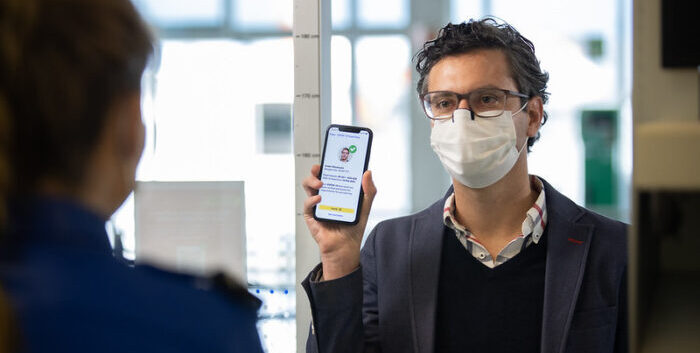The International Air Transport Association (IATA) has urged nations around the world to adopt the EU Digital Covid Certificate (DCC) as the global standard for digital vaccine certificates.
According to IATA, the EU DCC meets several key criteria that have been identified as important if a digital vaccination certificate is to be effective.
Conrad Clifford, deputy director general at IATA, said, “The DCC was delivered in record time to help facilitate the reopening of EU states to travel. In the absence of a single global standard for digital vaccine certificates, it should serve as a blueprint for other nations looking to implement digital vaccination certificates to help facilitate travel and its associated economic benefits.”
Key areas of effectiveness identified by IATA include:
- Format: The DCC has the flexibility to be used in both paper and digital format;
- QR code: The DCC QR code can be included in both digital and paper format. It contains essential information as well as a digital signature to make sure the certificate is authentic;
- Verification and authentication: The European Commission has built a gateway through which the encrypted data used to sign DCCs and required to authenticate certificate signatures can be distributed across the EU. The gateway can also be used to distribute encrypted data of non-EU certificate issuers. The EU has also developed a specification for machine readable Validation Rules for cross-country travel.
The EU DCC is implemented in the 27 EU member states and a number of reciprocal agreements have been agreed with other states’ own vaccination certificates, including Switzerland, Turkey and Ukraine. In the absence of a single global standard for digital vaccination certificates, up to 60 other countries are looking to use the DCC specification for their own certification.
The DCC model is consistent with the latest World Health Organization Guidance and is fully supported by IATA Travel Pass. Another benefit of the DCC is that it enables holders to access non-aviation sites in Europe that require proof of vaccination, such as museums, sporting events and concerts.


